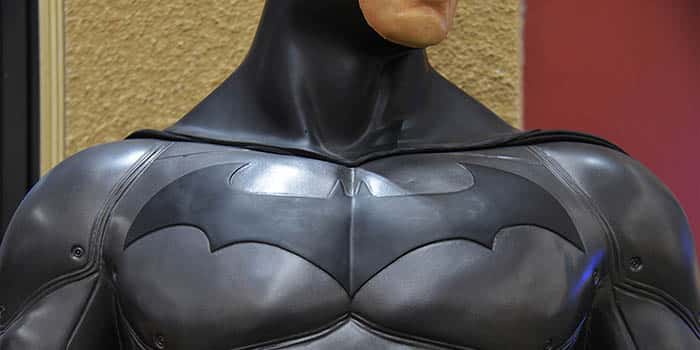- Casino
- By State
- Alabama
- Alaska
- Arizona
- Arkansas
- California
- Colorado
- Connecticut
- Delaware
- Georgia
- Florida
- Hawaii
- Idaho
- Illinois
- Indiana
- Iowa
- Kansas
- Kentucky
- Louisiana
- Maine
- Massachusetts
- Maryland
- Michigan
- Minnesota
- Mississippi
- Missouri
- Montana
- Nebraska
- Nevada
- New Hampshire
- New Jersey
- New Mexico
- New York
- North Carolina
- North Dakota
- Ohio
- Oklahoma
- Oregon
- Pennsylvania
- Rhode Island
- South Carolina
- South Dakota
- Tennessee
- Texas
- Utah
- Vermont
- Virginia
- Washington
- West Virginia
- Wisconsin
- Wyoming
- By State
- Slots
- Poker
- Sports
- Esports
The Cancer of Match-Fixing Is Back Says Sportradar’s Andreas Krannich

The “cancer of sports betting” is coming back as sports return back to normal, cautions Sportradar managing director of integrity services Andreas Krannich.
Match-Fixing Not Sports Betting Is the Problem
Match-fixers are to blame for sports betting’s negative image, argues Sportradar managing director of integrity services Andreas Krannich who spent 10 years at the German Bundesliga. In a recent podcast, Krannich has said that betting is an indelible part of sports, and cannot be avoided.
He went on to specifically explain that having the gambling industry involved with sports was not why match-fixing happened. “[It] is not because the betting companies are offering odds, it is because there are criminals out in the market,” Krannich said.
🚨 UFDS, our bet monitoring system, will launch free of charge to sports federations and leagues in October.
— Sportradar (@Sportradar) February 18, 2021
Andreas Krannich spoke to @David_Ornstein and @markchapman this week to discuss the rising issue of match-fixing.
🎧 Listen to the full episode below ⬇️
He rebuked the position of most sports bodies and politicians who have been arguing for years that all the match-fixing woes begin and stop with sports betting. Once a sport is prominent enough, says Krannich, betting begins and appetite grows.
So, the question is whether a legitimate bookmaker would be offering betting options or rather an offshore one. To put things in perspective, the United States sports betting market in 2019 alone was valued at $85 billion.
Another report by Statista shows that globally, sport betting has reached $203 billion in size, with some 31,000 businesses running and 197,000 employees depending on it for their livelihoods.
Last year alone, there were 160 suspicious signals detected by Sportradar, Krannich explained, as his company rolled out the Universal Fraud Detection System just this week. UFDS is a free tool that allows sports leagues and governing bodies to use automated solutions that collate data and flag potentially rigged games.
Match-Fixers Are Coming Back and Invading New Sports
Moreover, Krannich talked about the growing importance of media rights in sports betting. Global coverage has grown exponentially and companies are vying against each other to claim the biggest stake in the market.
Krannich explained that this is more or less a good thing. Interest in specific sports means that TV coverage would be there, he said, giving an example with Argentina’s Second Division Women’s Basketball.
Because of the activity’s growing interest, “the cancer of match-fixing” would inevitably follow explains Krannich. Yet, Sportradar packs a powerful punch when it comes to regulating the industry. With 600,000 matches tracked in 2020, and over 60 senior betting analysts, the company is in a position to navigate the complexities of fraud in sports.
Yet, match-fixing syndicates have also suffered since the COVID-19 pandemic started. Not only are criminal organizations cut off from some markets, Krannich explains. They also cannot predict or reach out to players as often as before.
However, Krannich explained that match-fixers will continue to target vulnerable leagues. They have learnt their lesson too, realizing that match-fixing is a “big change for them.” However, syndicates have been levering the power of digital communication to reach out to coaches, teams, players, and referees in the hopes of securing a deal.
With sports now returning, Krannich cautions that match-fixers are targeting sports where the activity was less popular in the past. Fraudsters are going to get more involved with these marginal sports instead now. Yet, Sportradar seems in a good position with UFDS to counterweigh some of that.
Related Topics:
Mike made his mark on the industry at a young age, consulting for companies that would later become regulators. As one of the lead editor of Gambling News, he dedicates his weekdays to this project, aiming to educate the masses on the latest developments in the gambling circuit. His expertise and passion for the industry make him an invaluable asset to our team.
Previous Article

Sports
February 21, 2021
Aspire Global Posted Record Q4 and 2020 Revenues and EBITDA

Next Article


Sports
February 21, 2021
BetMGM Partners with TopGolf for Brand Awareness, M life Rewards
Must Read
More Articles






Business
April 17, 2025
Aristocrat Reportedly Eyeing Interblock Acquisition

Slots
April 17, 2025
Unleash Magical Powers in Play’n GO’s Moon Princess Origins

Business
April 16, 2025
Visualize Group Sets Out to Acquire BMM Testlabs

Industry
April 16, 2025
‘Tesla Terrorist’ Pleads Not Guilty to Litany of Charges

Casino
April 16, 2025
Jake’s 58 Casino Warns About Online Gambling Scam









